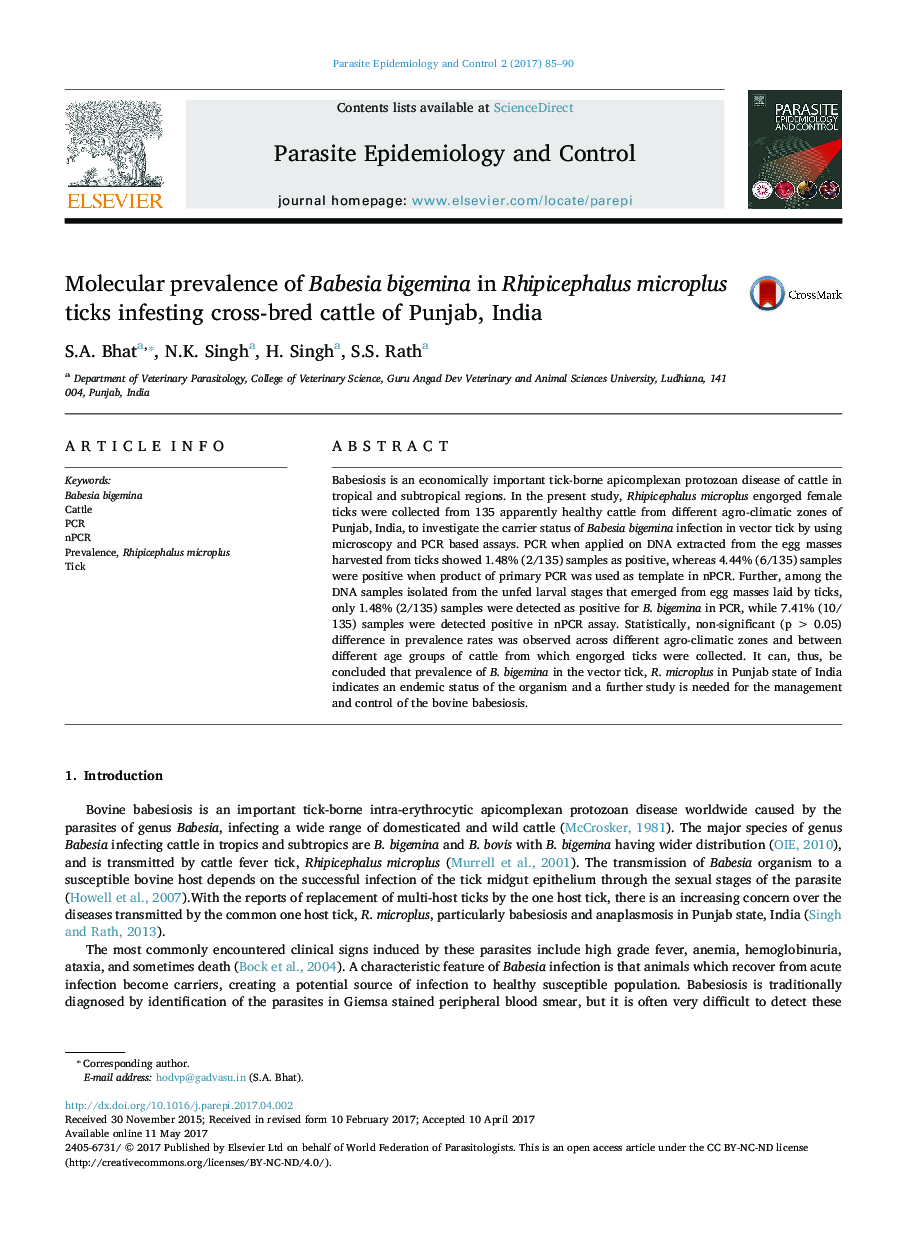| Article ID | Journal | Published Year | Pages | File Type |
|---|---|---|---|---|
| 8506889 | Parasite Epidemiology and Control | 2017 | 6 Pages |
Abstract
Babesiosis is an economically important tick-borne apicomplexan protozoan disease of cattle in tropical and subtropical regions. In the present study, Rhipicephalus microplus engorged female ticks were collected from 135 apparently healthy cattle from different agro-climatic zones of Punjab, India, to investigate the carrier status of Babesia bigemina infection in vector tick by using microscopy and PCR based assays. PCR when applied on DNA extracted from the egg masses harvested from ticks showed 1.48% (2/135) samples as positive, whereas 4.44% (6/135) samples were positive when product of primary PCR was used as template in nPCR. Further, among the DNA samples isolated from the unfed larval stages that emerged from egg masses laid by ticks, only 1.48% (2/135) samples were detected as positive for B. bigemina in PCR, while 7.41% (10/135) samples were detected positive in nPCR assay. Statistically, non-significant (p > 0.05) difference in prevalence rates was observed across different agro-climatic zones and between different age groups of cattle from which engorged ticks were collected. It can, thus, be concluded that prevalence of B. bigemina in the vector tick, R. microplus in Punjab state of India indicates an endemic status of the organism and a further study is needed for the management and control of the bovine babesiosis.
Keywords
Related Topics
Life Sciences
Agricultural and Biological Sciences
Agricultural and Biological Sciences (General)
Authors
S.A. Bhat, N.K. Singh, H. Singh, S.S. Rath,
